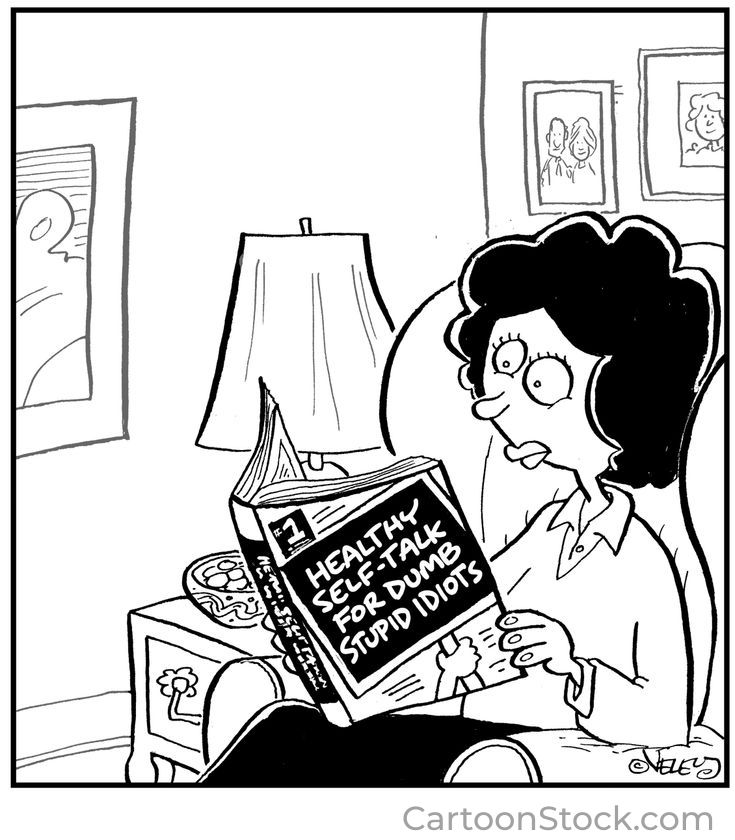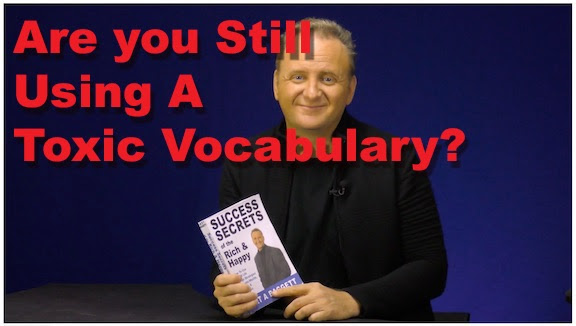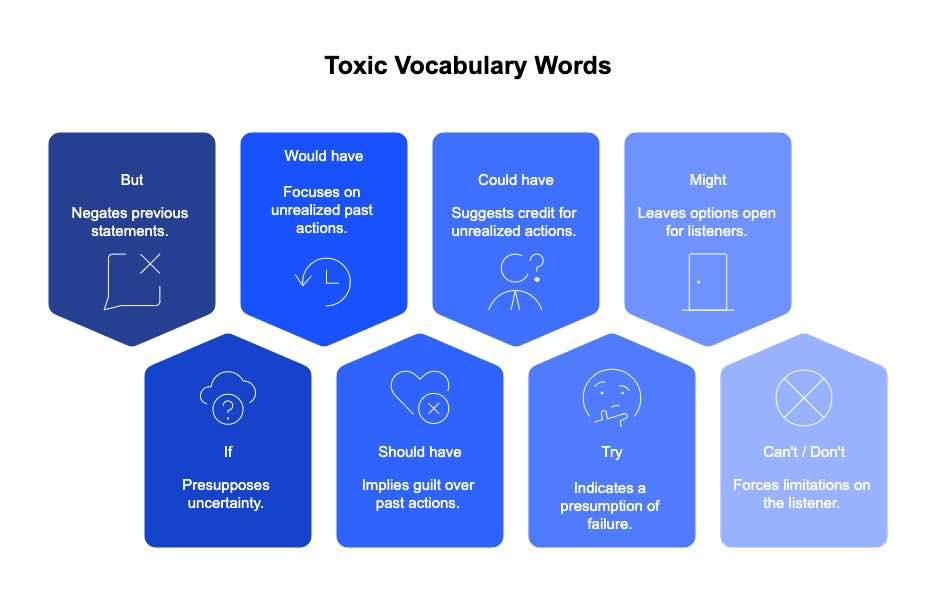Are You Still Using Toxic Vocabulary?
If I could teach the human race one technique for being happier… it would be to control that little voice inside that speaks to each person inside their own head.
The second might be to control what people type publicly on Twitter/X. “But hey, I am a realist.” LOL
So, I made video about one of the most popular topics I’ve even discussed in my books. This video and chapter about TOXIC vocabulary is something based on the way I manage my own words coming out of my mouth and occurring inside my mind. It’s one of those concepts that once you learn it… you will want to convince your friends and family to also play by these simple rules about what words to never utter again. If we can get a generation to stop using derogatory language which inspired hate and racism, why can’t we get rid of these nine words that cause self-sabotage and unnecessary poor programming?
A BIT OF HUMOR

WHY MY COUSIN FELL OUT OF THE TREE AND I DIDN’T.
Have you ever thought about the power of the correct words? Here’s a true story about a lesson learned when I was about 8 years old. Picture this: I’m swinging from the branch of 30-foot tree, doing what kids do. My cousin Tammy follows the me up into the tree and her Mom yells loudly “Tammy! Don’t fall!” Guess what happens? Down she went. Thump. Ouch. Tammy cries.
With that phrase accidentally implanted her mind, her brain couldn’t process the negative… so did what she say in her mind? She fell.
Meanwhile, my dad yelled “Hold on tightly!” I gripped the tree and watched my cousin fall 9 feet to the earth. Everybody was fine, but I learned that words matter. Words actually program your mind like a hypnotist telling you what to think about in a fraction of a second. My did was a language Ninja and my aunt was not.
VIDEO: 9 WORDS YOU MIGHT CHOOSE TO NEVER SAY AGAIN.

THE 9 TOXIC WORDS
But
Try
If
Might
Would Have
Should Have
Could Have
Can’t
Don’t
But – negates any words that are stated before it.
If – presupposes that you may not.
Would have – past tense that draws attention to things that didn’t actually happen.
Should have – past tense that draws attention to things that didn’t actually happen (and implies guilt.)
Could have – past tense that draws attention to things that didn’t actually happen but the person tries to take credit as if it did happen.
Try – presupposes failure.
Might – It does nothing definite. It leaves options for your listener.
Can’t /Don’t – These words force the listener to focus on exactly the opposite of what you want. This is a classic mistake that parents and coaches make without knowing the damage of this linguistic error.

Examples:
Toxic phrase: “Don’t drop the ball!”
Likely result: Drops the ball
Better language: “Catch the ball!”
Toxic phrase: “You shouldn’t watch so much television.”
Likely result: Watches more television.
Better language: “I read too much television makes people stupid. You might find yourself turning that TV off and picking up one of those books more often!”
Exercise:
Take a moment to write down all the phrases you use on a daily basis or any Toxic self-talk that you have noticed yourself using. Write these phrases down so you will begin to catch yourself as they occur and change them.
ACTION STEPS
- IdentifyToxic Words: Words like “but,” “try,” and “can’t” often lead our brains to negative results by placing the outcome of exactly what we DON’T WANT into our brain. Our brain has to create an image of the outcome we don’t want… if you use those words. Don’t prompt our better than AI brain to visualize the outcome you don’t want. Replace these 9 words with affirmative words that direct our minds to create images of what DO WANT. It’s pretty simple actually. This is just something we were never taught unless you are playing with prompt engineering in CHAT GPT…. Your brain is the basis of all AI programming. Tell it what you want… not what you don’t want.
- Reframe Your Self-Talk: Instead of saying “Don’t have a car accident,” say “Drive safely!” It might sound simple, but this positive framing aligns our mental imagery with our goals.
- Teach with Examples: Try this with friends: ask them to “try” dropping a pencil, then explain why saying you’ll “try” to do something leads to concentrated effort to appear like they are doing something, but the mind has already decided to ultimately fail.
Also, I have some exciting news for you. I have rewritten and updated the Success Secrets of the Rich and Happy book (The one I am holding in my hands in the video). The new title is called Happy Wealthy Mind. I have added over 200 pages of brand-new content about residual income and the mindset shifts required to reprogram your mind in under six minutes a day. It will be released later this year as an audio book and paperback. Since you are reading my newsletter, you will be the first to know the details when it’s ready to order. Tons of the content of the new book is already loaded inside our Life Design Academy Free skool community. Get your user name and login today. All the stuff I used to sell I have is there and ready to read and watch, as a gift.
https://www.skool.com/lifedesignacademyfree/about

Feel free to share this newsletter with your friends and family. They can safely subscribe at this secure website with just and email address. https://www.happywealthymind.com
Warmly,

Bart Baggett
Author of Happy Wealthy Mind, The Magic Question, Success Secrets of the Rich & Happy and Founder of the Life Design Academy